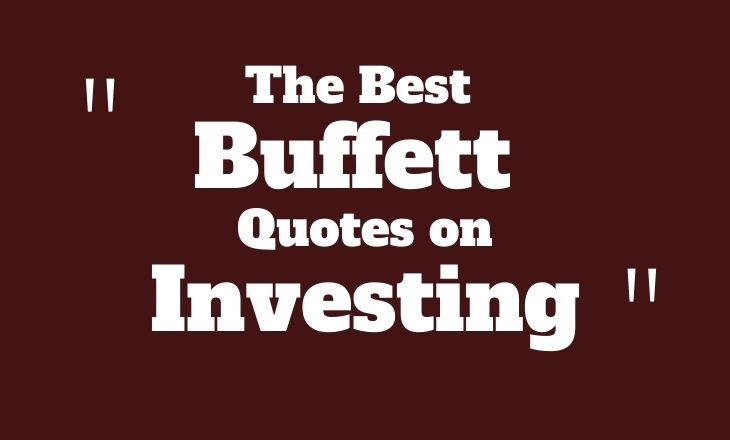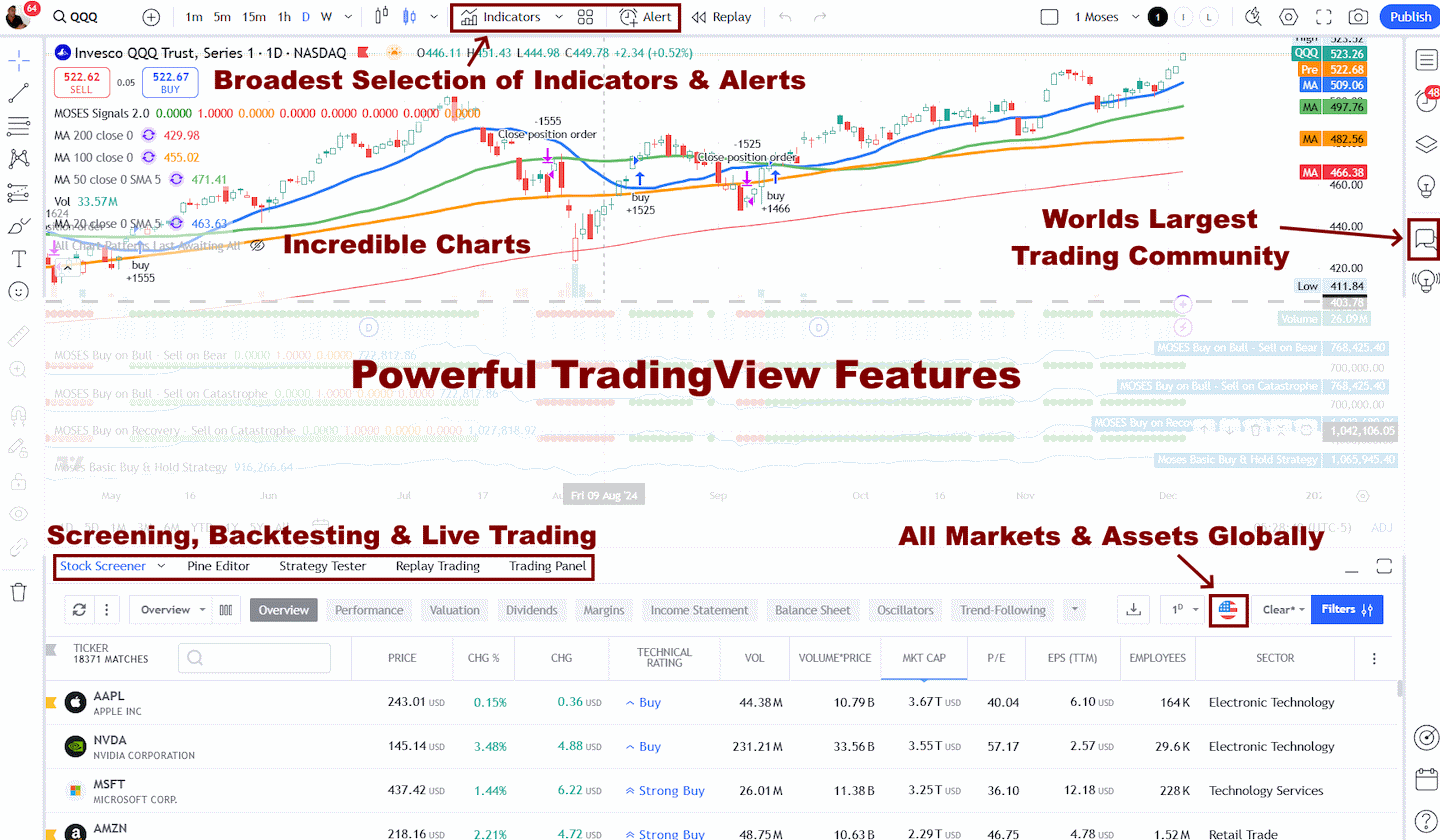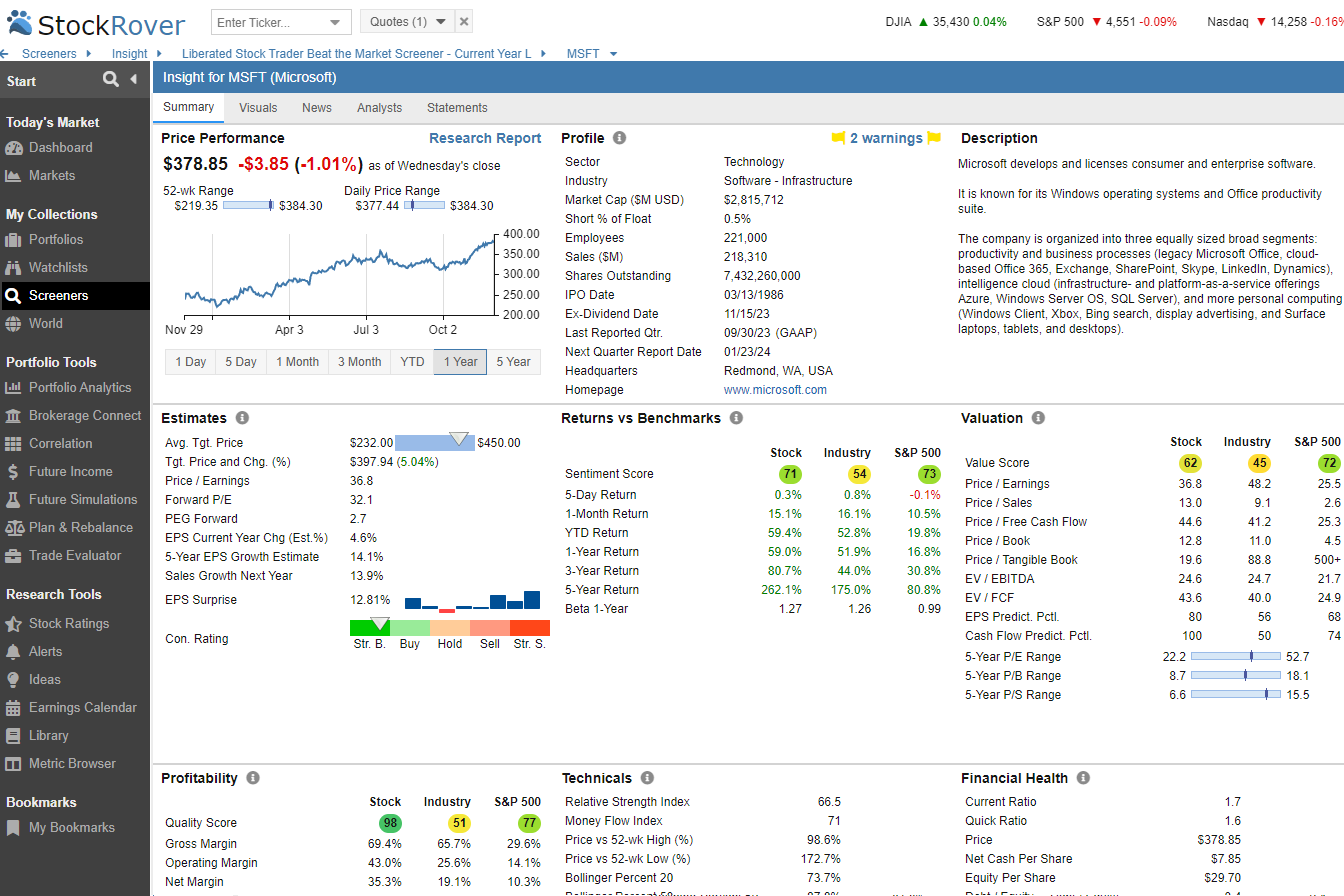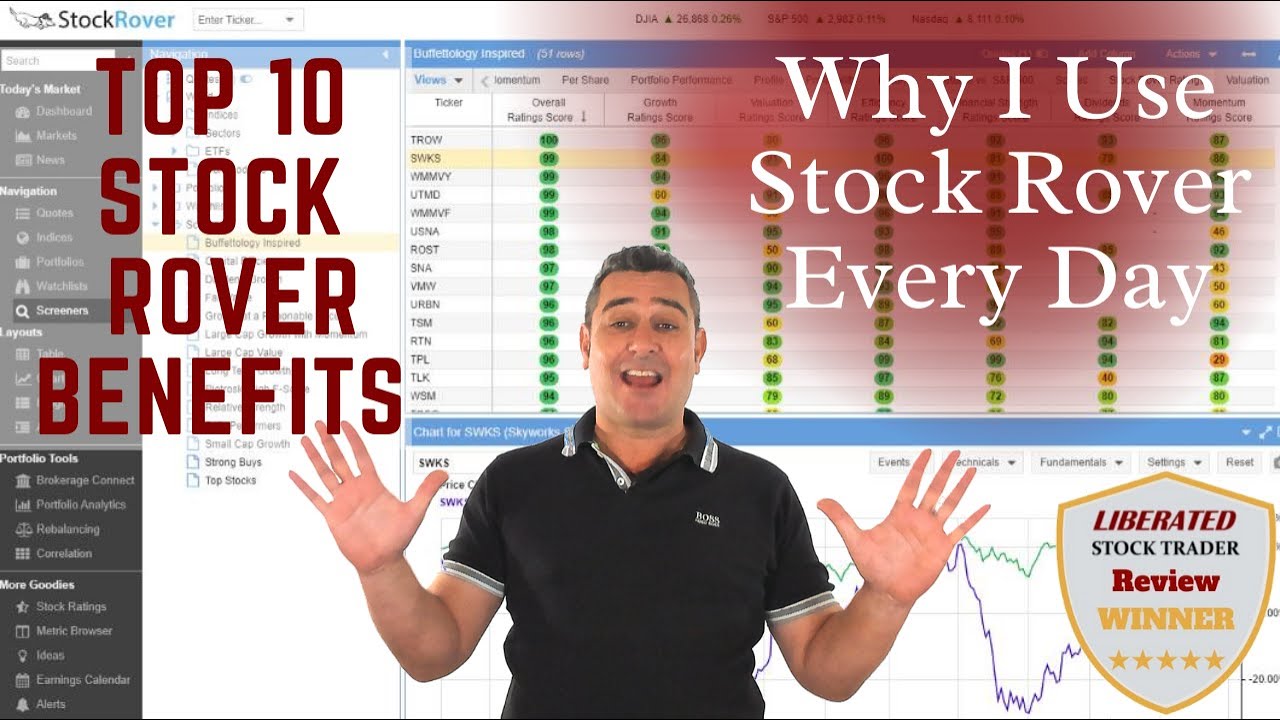Warren Buffett is widely regarded as one of the greatest investors in history.
His quotes on investing offer a wealth of wisdom for anyone looking to make savvy investments and build financial security. Let’s take a look at some of his best investing quotes:
Warren Buffett’s best investing quotes are:
“You might want a larger margin of safety,”
“Never invest in a business you don’t understand,”
“Don’t bet on miracles.”
Let’s explore the incredible depth of wisdom embedded in Buffett’s investing quotes.

Warren Buffett’s Best Investing Quotes
“Be fearful when others are greedy and greedy when others are fearful.”
“Our favorite holding period is forever.”
“You might want a little larger margin of safety.”
“Never invest in a business you don’t understand.”
“Don’t bet on miracles.”
“Do not take yearly results too seriously.”
“Focus on return on equity, not earnings per share.”
“If a business does well, the stock eventually follows.”
“What the wise do in the beginning, fools do in the end.”
“Time is the friend of the wonderful company, the enemy of the mediocre.”
Warren Buffett’s Best Quotes on Investing Explained
“Be fearful when others are greedy and greedy when others are fearful.”
This quote encourages investors to buy low and sell high. When the market is booming, it’s time to look for better opportunities elsewhere, as the prices may be inflated. On the other hand, when the economic outlook is grim, it can be an ideal time to buy into stocks that are undervalued and have the potential for appreciation.
“Our favorite holding period is forever.”
Focusing on the long-term is what Warren preaches; this is another example to help people relax about their investments and focus on the long-term future.
“You might want a little larger margin of safety.”
“If you understood a business perfectly and the future of the business, you would need very little in the way of a margin of safety. So, the more vulnerable the business is, assuming you still want to invest in it, the larger the margin of safety you’d need. If you’re driving a truck across a bridge that says it holds 10,000 pounds and you’ve got a 9,800-pound vehicle if the bridge is 6 inches above the crevice it covers, you may feel okay, but if it’s over the Grand Canyon, you may feel you want a little larger margin of safety…”
The margin of safety is all about reducing the risk of an investment. The bigger the discount you can get when buying a company’s share, the less risk you have because how far further could the stock price fall?
“Never invest in a business you don’t understand.”
“We blew it.” On not buying Alphabet (NASDAQ: GOOG) or Google years ago.
My thorough testing awarded TradingView a stellar 4.8 stars!
With powerful stock chart analysis, pattern recognition, screening, backtesting, and a 20+ million user community, it’s a game-changer for traders.

Whether you're trading in the US or internationally, TradingView is my top pick for its unmatched features and ease of use.
Explore TradingView – Your Gateway to Smarter Trading!
“Don’t bet on Miracles.”
“I’ve watched Amazon from the start. I think what Jeff Bezos has done is something close to a miracle . . . the problem is when I think something will be a miracle, I tend not to bet on it.”
Buffett only invests in simple businesses with a competitive advantage in industries not subject to massive change. Even though he freely admits to missing the boat on some high-tech companies, he has no regrets, as shown in the Amazon & Google quotes.
“Time is the friend of the wonderful company, the enemy of the mediocre.”
Mediocre companies will eventually lose out to fitter and stronger companies. The wonderful company with a competitive advantage and long-term profitability will win over time.
“If a business does well, the stock eventually follows.”
Wall Street analysts will discover businesses that make regular profits and control their costs in an industry they have an advantage in eventually, and the stock will rise accordingly.
“Only buy something you’d be perfectly happy to hold if the market shuts down for ten years.”
Again, this refers to buying shares in a business regardless of what the market thinks and how the market values the stock.
Building the Best Buffett Stock Screener for Value Investing
“Do not take yearly results too seriously.”
“Do not take yearly results too seriously. Instead, focus on four or five-year averages.”
Buffett refers to focusing on the longer terms rather than the quarterly or yearly results. A company trending up over five years is more valuable than one trending up in one year.
“Focus on return on equity, not earnings per share.”
This refers to focusing on the value of a company, not the speed of their earnings increases.

Try Powerful Financial Analysis & Research with Stock Rover
“What the wise do in the beginning, fools do in the end.”
The wise people here are people like Buffett, who find great companies at low market valuations and buy them. The fools are the majority of investors who jump on the investing bandwagon too late when the share price is so high it is difficult to make a good profit. Towards the end of a stock market crash, everyone sells their holdings (the fools), whereas the wise buy.
“Nobody buys a farm based on whether they think it’s going to rain next year.”
“Nobody buys a farm based on whether they think it’s going to rain next year. They buy it because they think it’s a good investment over 10 or 20 years.”
Investing In Stocks Can Be Complicated, Stock Rover Makes It Easy.
Stock Rover is our #1 rated stock investing tool for:
★ Growth Investing - With industry Leading Research Reports ★
★ Value Investing - Find Value Stocks Using Warren Buffett's Strategies ★
★ Income Investing - Harvest Safe Regular Dividends from Stocks ★

"I have been researching and investing in stocks for 20 years! I now manage all my stock investments using Stock Rover." Barry D. Moore - Founder: LiberatedStockTrader.com
“Lethargy bordering on sloth should remain the cornerstone of an investment style.”
Referring to day traders and swing traders, Buffett warns against frequent trading. Lethargy and sloth also mean not being an active investor trading the markets daily, letting the businesses you buy work for you in the long term.
“Opportunities come infrequently. When it rains gold, put out the bucket, not the thimble.”
If you find a great investment opportunity, grab it with both hands and enjoy the windfall; do not be overly cautious.
“Turnarounds seldom turn.”
If a business is in a crisis and needs a turnaround, there is something wrong with the economics of the business, industry, or market. This represents a risk Buffett is unlikely to take. Although in 2008, he invested in banks going through the financial crisis, he only did that with guaranteed returns on preference shares and debt, reducing his risk significantly.
“Buy companies with strong histories of profitability and a dominant business franchise.”
The mantra here is the common theme of competitive advantage and the ability to scale.
“An investor needs the ability to correctly evaluate selected businesses.”
“What an investor needs is the ability to correctly evaluate selected businesses. Note that word “selected”: You don’t have to be an expert on every company or even many. You only have to be able to evaluate companies within your circle of competence. The size of that circle is not very important; knowing its boundaries, however, is vital.”
Do not spread your focus too widely; evaluate what you know in an industry that you know, and you will be able to uncover the gems that will make you money.
“In the short term, the market is a popularity contest. In the long term, a market is a weighing machine.”
The media and Wall Street constantly promote fashionable stocks; Buffett rebels against this popularity contest. The weighing machine refers to the fact that good companies’ market dominance and profitability will mean eventually they will be valued highly.
“Unless you can watch your stock holding decline by 50 percent without becoming panic-stricken, you should not be in the stock market.”
This refers to having patience and belief in investment throughout the inevitable dips and crashes in the stock market. Mr. Market is paranoid and emotional, and its valuations on companies are rarely correct in the short term.
“For the investor, a too-high purchase price for the stock of an excellent company can undo the effects of a subsequent decade of favorable business developments.”
Again, the concept of the price you pay to hold stock. It may take a long time to pay a high price for those earnings (price/earnings ratio).
“In the business world, the rear-view mirror is always clearer than the windshield.”
This commentary on business decision-making essentially means it is easy to see your errors when you reflect on your historical decisions. Understanding all the ramifications of the decisions you are making now is much more difficult; do not get hung up on past decisions or people’s views.
“I am a better investor because I am a businessman and a better businessman because I am an investor.”
Buffett is proud of being an investor and running and growing a huge business. Having business acumen and experience in running businesses is of great help to long-term investors.
“The business schools reward difficult, complex behavior more than simple behavior, but simple behavior is more effective.”
Buffett never went to business school; he has a simple yet powerful business approach based on numbers and good ethical business decision-making. Business schools, he believes, obstruct the simplicity of building and running a business.
“I try to invest in businesses that are so wonderful that an idiot can run them. Because sooner or later, one will.”
This is an excellent insight into why many businesses begin to fail when the third generation of family owners takes over. So, a “business that is so simple any idiot can run it” is a maxim that reminds us of the risks of nepotism.
“Pricing your products is an ongoing process that requires a good mix of math and market research. All business owners need to learn how to do it right”.
Finally, in this section, Buffett believes that the correct pricing of any product can be the deciding factor in a business’s success.
“The Internet Phenomenon”
“The Internet, as a phenomenon, is just huge. That much, I understand. I don’t know how to make money at it… I don’t try to profit from the Internet. But I want to understand the damage it can do to an established business. Our approach is profiting from a lack of change rather than from change. With Wrigley chewing gum, the lack of change appeals to me. I don’t think it is going to be hurt by the Internet. That’s the kind of business I like.”
Here, Buffett explains that for him, the speed of development and the unseen risks of industry disruption are something he cannot foresee, representing a risk he is unwilling to invest in.
